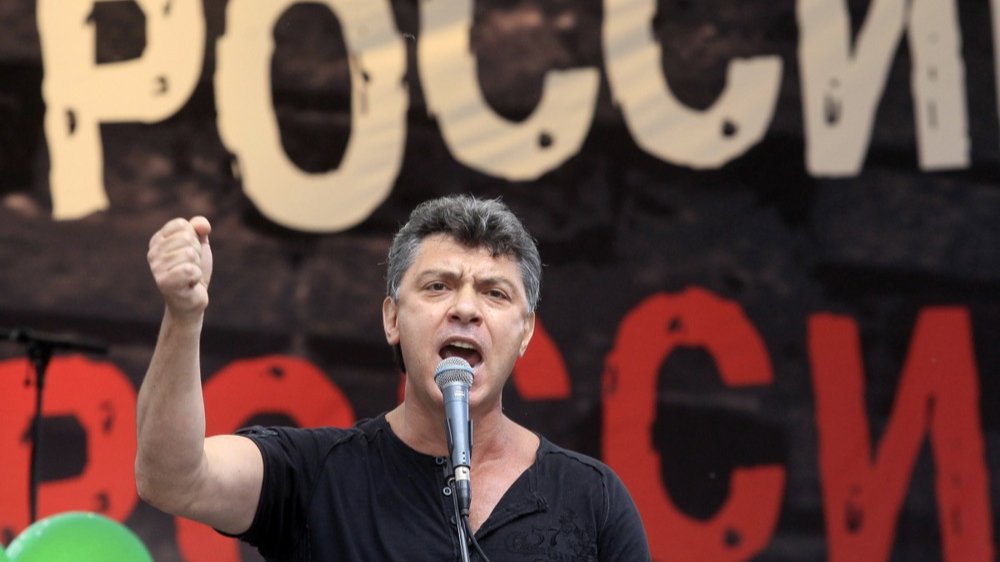Today marks nine years since Russian opposition politician Boris Nemtsov was murdered in Moscow just outside the Kremlin walls. Since then, the bridge where Nemtsov was killed, now unofficially referred to as Nemtsov Bridge, has become an impromptu memorial to one of Russia’s most beloved opposition leaders. To this day, police regularly remove flowers left by his supporters at the site of his assassination.
While events in Nemtsov’s honour are being held around the world, in Russia, all Nemtsov memorial rallies have been banned this year.
Novaya Europe looks back at the main events of Nemtsov’s 25-year career.
Nemtsov was born in 1959 and was raised in the city of Gorky, now Nizhny Novgorod. After studying for a degree in physics, he worked as a research fellow at a local institute until 1990, when he stood in Russia’s first democratic election and found himself a member of the Congress of People’s Deputies of Russia.
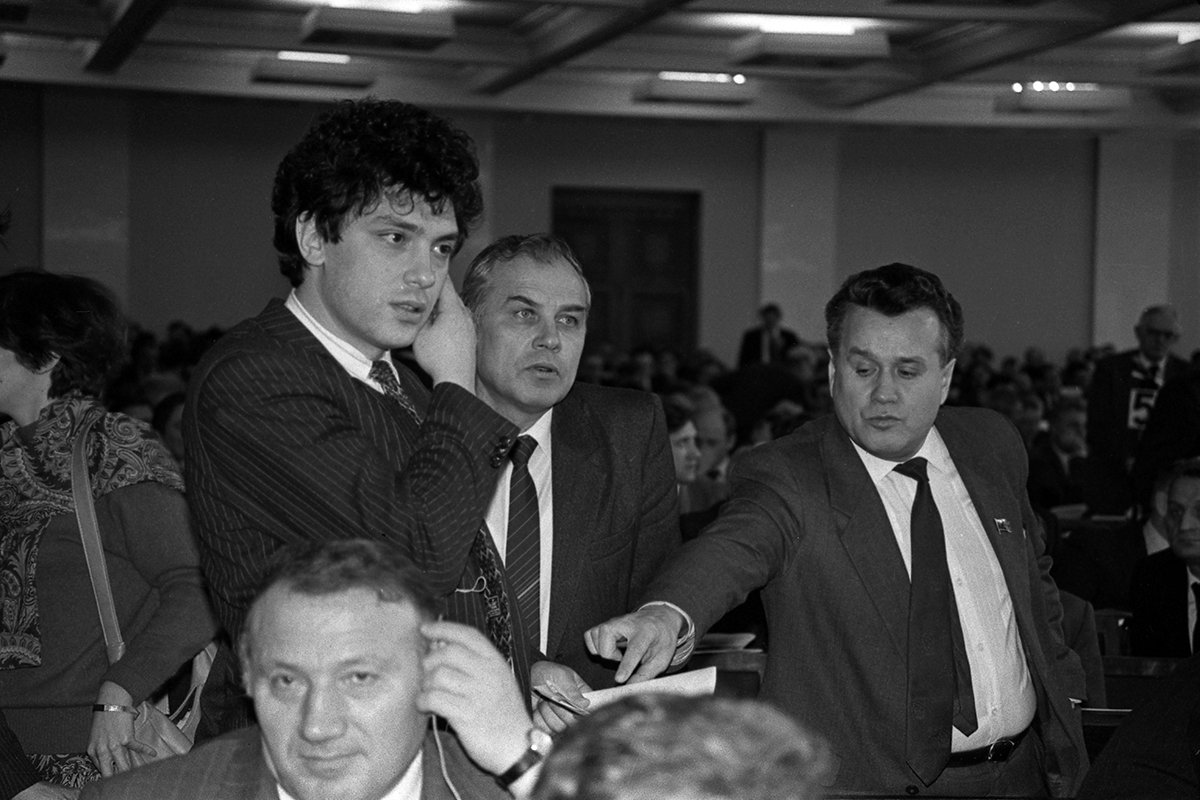
Boris Nemtsov at the third session of the Congress of People’s Deputies of Russia in March 1991. Photo: Vladimir Bogdanov / FotoSoyuz / Getty Images
Nemtsov made a name for himself as a “young reformer” after the fall of the Soviet Union the following year, being appointed to be governor of the Nizhny Novgorod region aged just 32. In March 1997 Nemtsov was appointed Russia’s first deputy prime minister and seemed favoured to become the next president of Russia, but his political career suffered a devastating blow from the 1998 Russian financial crisis, which saw the ruble devalued and Russia default on its national debt.
“Yeltsin wanted to see me as his successor, but then changed his mind and created Putin. That was his biggest mistake,” Nemtsov said in an interview with Ukrainian Radio Vesti on the day of his assassination.
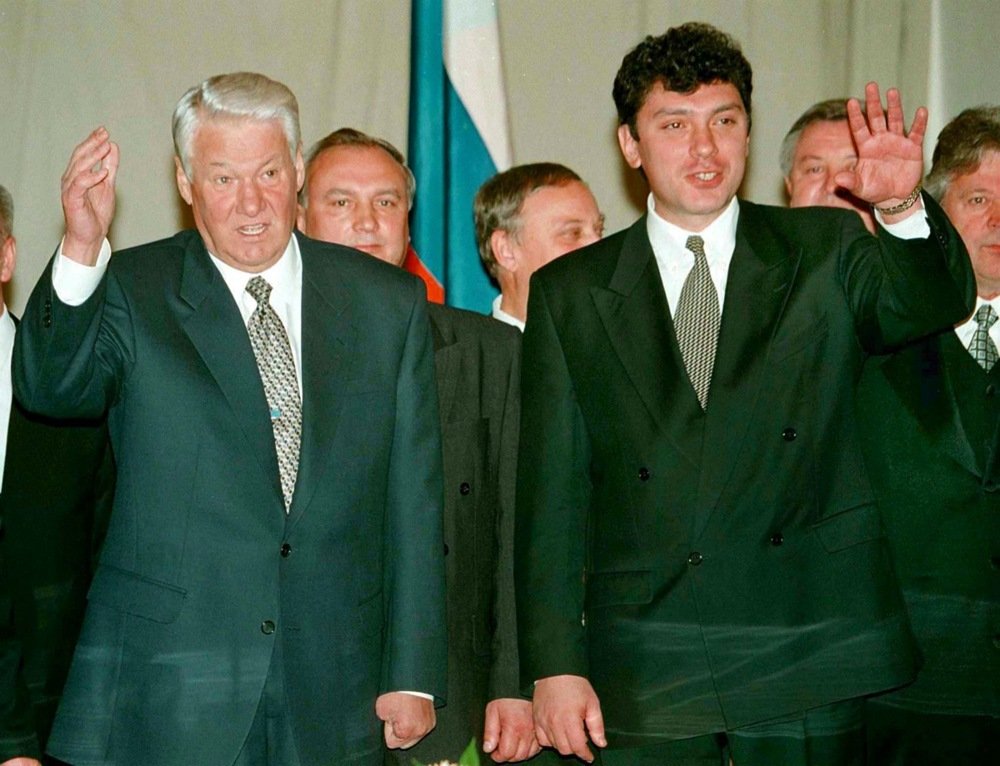
Russian President Boris Yeltsin and First Deputy Prime Minister Boris Nemtsov during a visit to Krasnoyarsk in November 1997. Photo: EPA/SERGEI CHIRIKOV
In 1999, Nemtsov co-founded the Union of Right Forces, a liberal democratic coalition that won seats in the State Duma the same year, with Nemtsov becoming the Duma’s deputy speaker. In the subsequent Duma election in 2003, the party lost all its seats after failing to cross the 5% threshold.
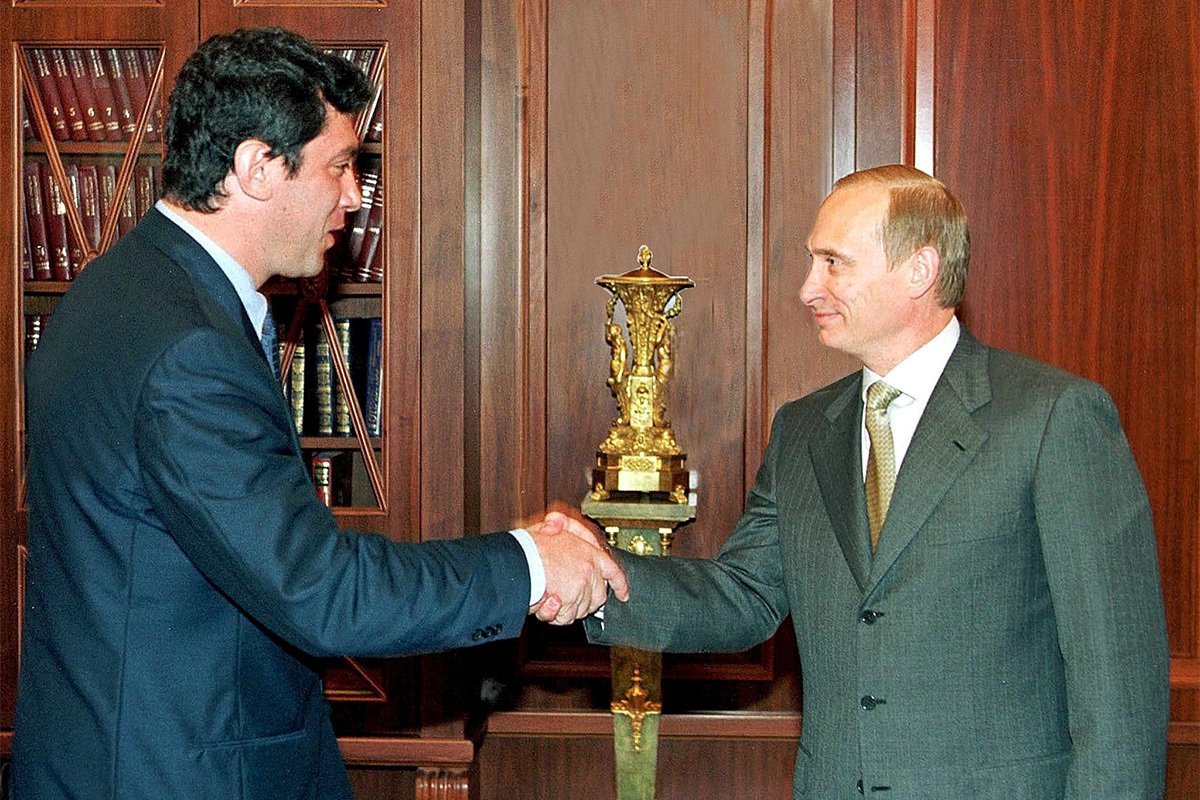
Nemtsov meeting with Vladimir Putin in the Kremlin shortly after Putin was elected president in 2000. Photo: ITAR-TASS / EPA
By the end of the 2000s, Nemtsov had become one of Putin’s most prominent critics, and was involved in organising opposition rallies, which led to numerous arrests.
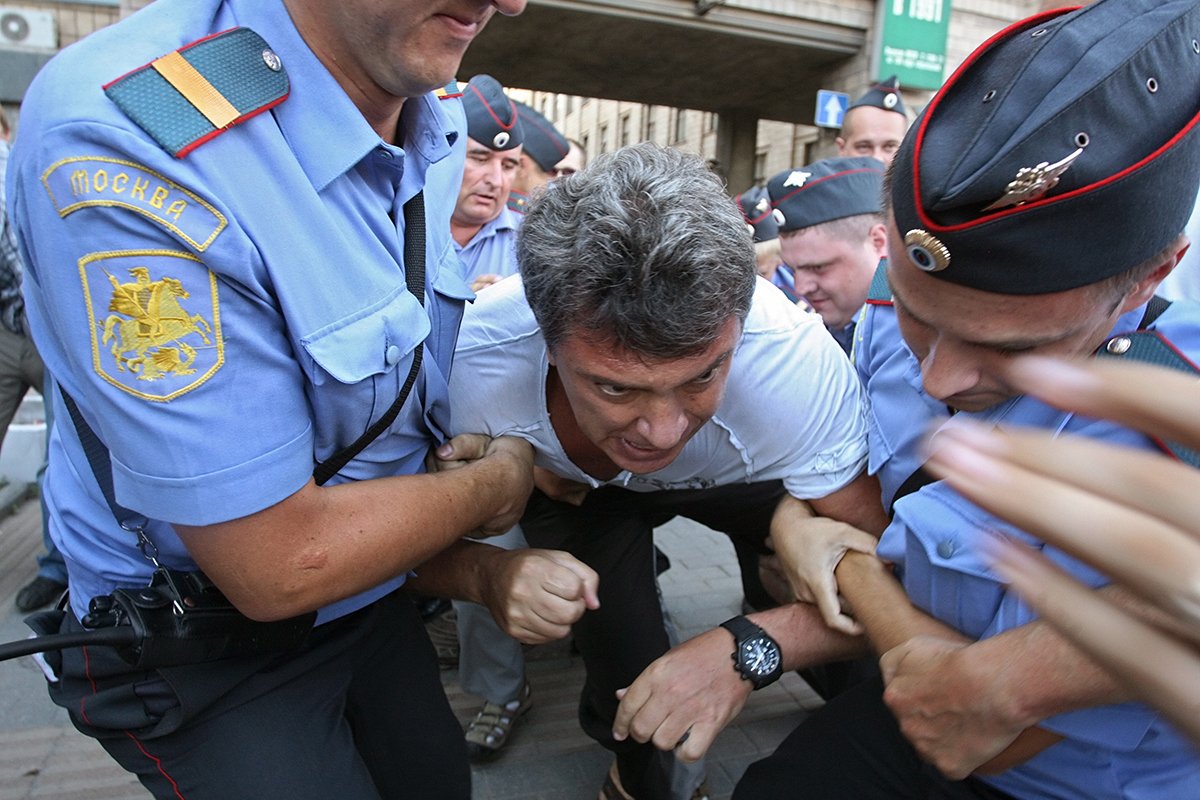
Nemtsov is detained during an opposition rally in Moscow, 31 July 2010. Photo: Igor Kharitonov / EPA
Nemtsov was also an active participant in the 2011-2012 protests for fair elections, alongside opposition politicians Sergey Udaltsov, Alexey Navalny and Ilya Yashin.
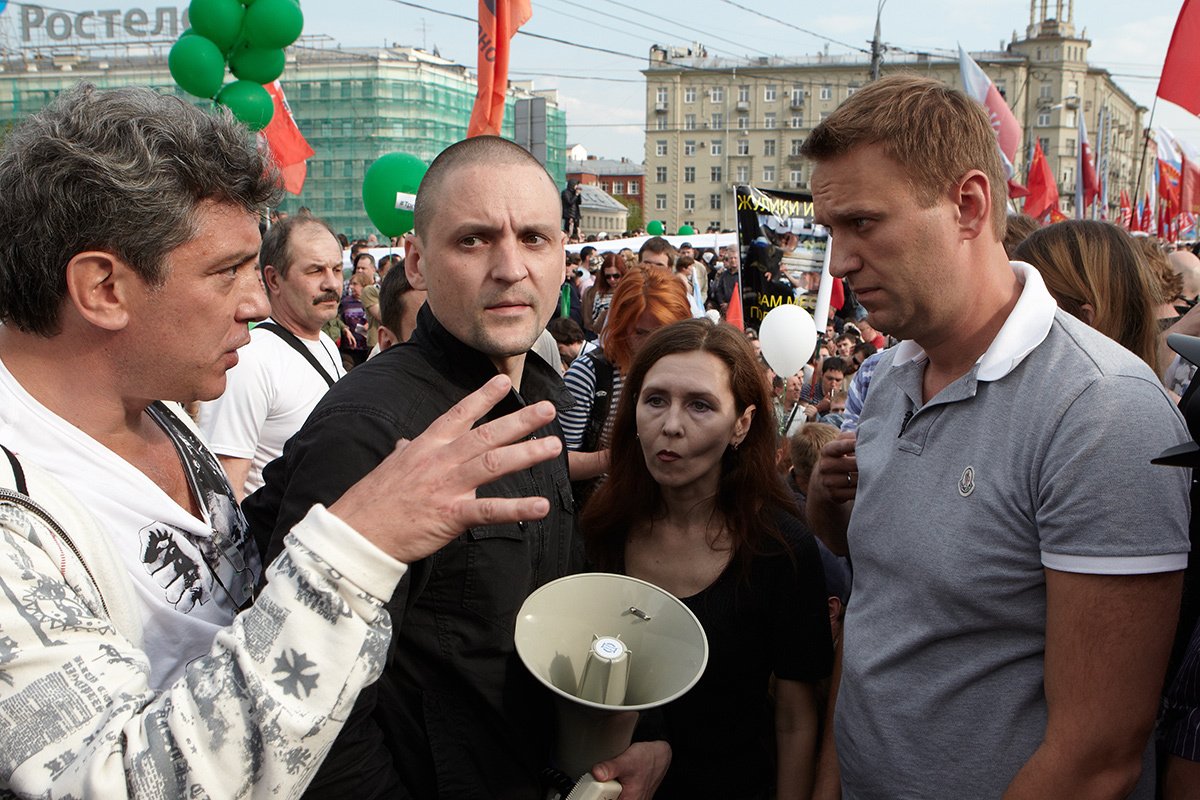
Boris Nemtsov, Sergey Udaltsov and Alexey Navalny at the March of millions in Moscow in May 2012. Photo: Oleg Nikishin / Epsilon / Getty Images
Nemtsov vehemently opposed the Russian invasion of Donbas and the annexation of Crimea in 2014, attending rallies for peace in Moscow. “Why am I here, at this march for peace?” he asked while attending a pro-Ukraine protest in March 2014. “Because I’m a patriot of this country. I am against the war. I don’t want the bodies of dead soldiers to be delivered to Moscow, Yaroslavl, Nizhny Novgorod. I don’t want our mothers, wives and children to mourn them.”
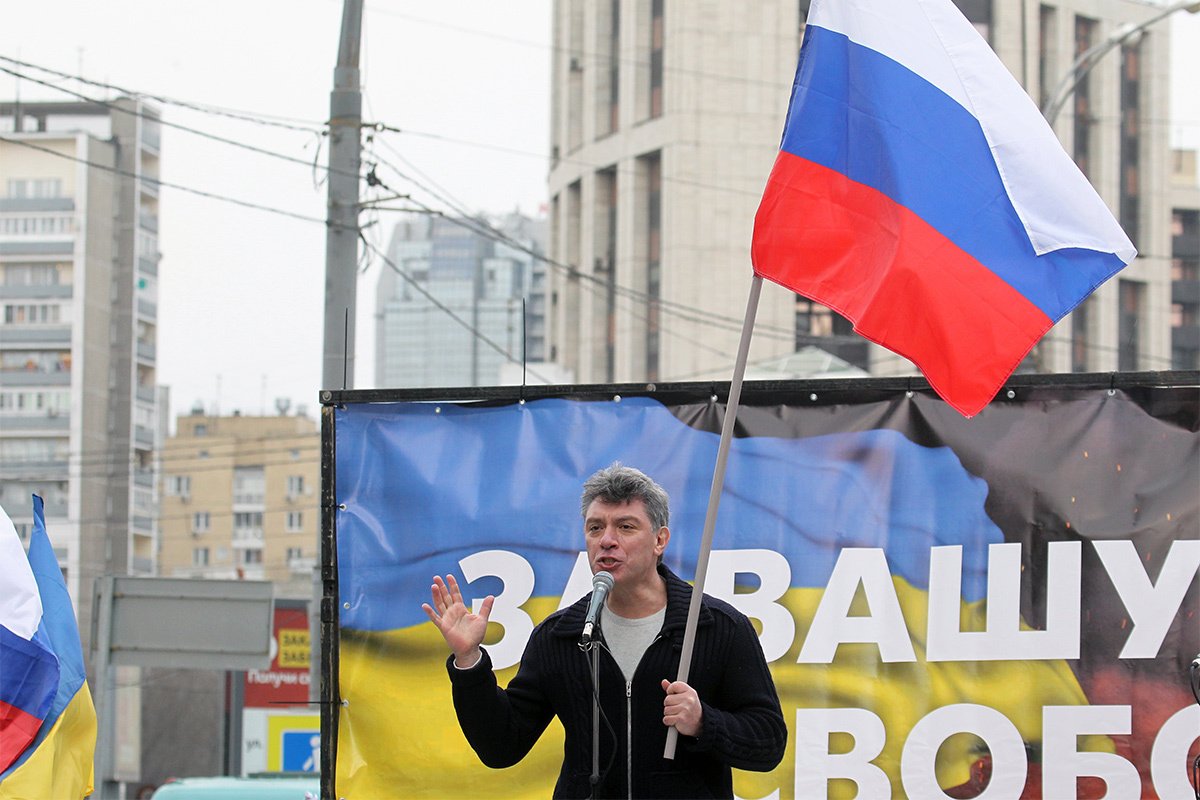
Boris Nemtsov speaks at a rally against the war in Donbas, Moscow, 15 March 2014. Photo: Sasha Mordovets / Getty Images
Nemtsov was also an outspoken critic of Ramzan Kadyrov’s rule in Chechnya, expressing concern over Kadyrov amassing his own army. “Today Kadyrov said that his fighters are ready to become defenders of the regime and to carry out any order from the Kremlin. I readily believe this,” Nemtsov said in 2014. “But what will happen next, as the country is entering a crisis? … The unspoken contract between Kadyrov and Putin — money in exchange for loyalty — is coming to an end.”
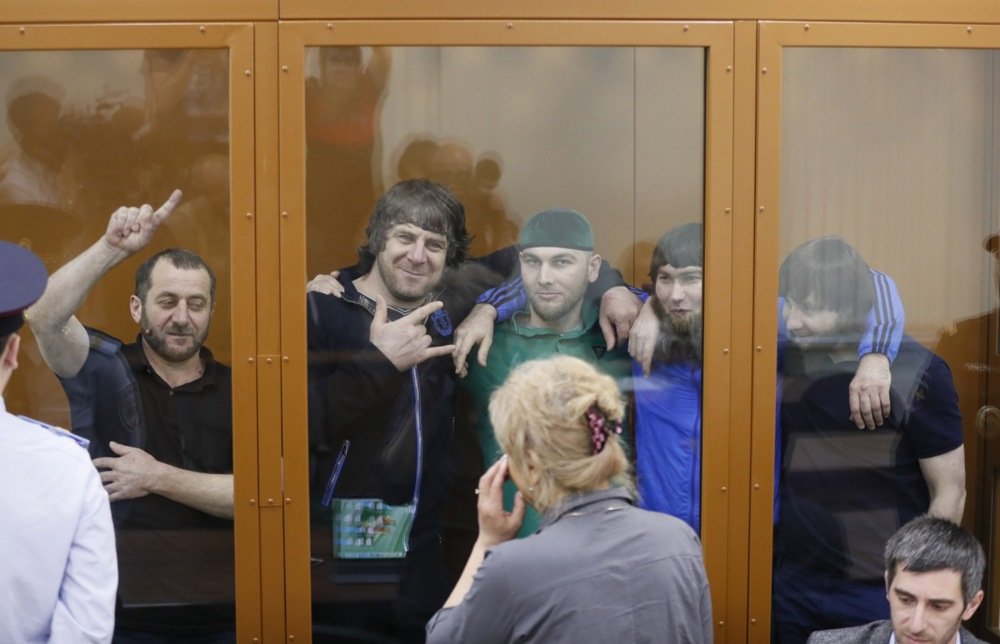
The five Chechen men accused of Nemtsov’s assassination are photographed during their July 2017 trial. All five were ultimately found guilty for carrying out a contract killing on Nemtsov. The identity of the person who ordered the hit officially remains unknown to this day. Photo: EPA/YURI KOCHETKOV
In an interview with Echo of Moscow on the day of his death, Nemtsov accused Putin of turning Russian TV into a “recruitment office”. “By fomenting hatred, they drive these naive people to their deaths as cannon fodder,” he said of the Kremlin campaign to send Russian “volunteers” to Donbas. Nemtsov was killed on 27 February 2015 while walking across the Bolshoy Moskvoretsky Bridge in the shadow of the Kremlin.
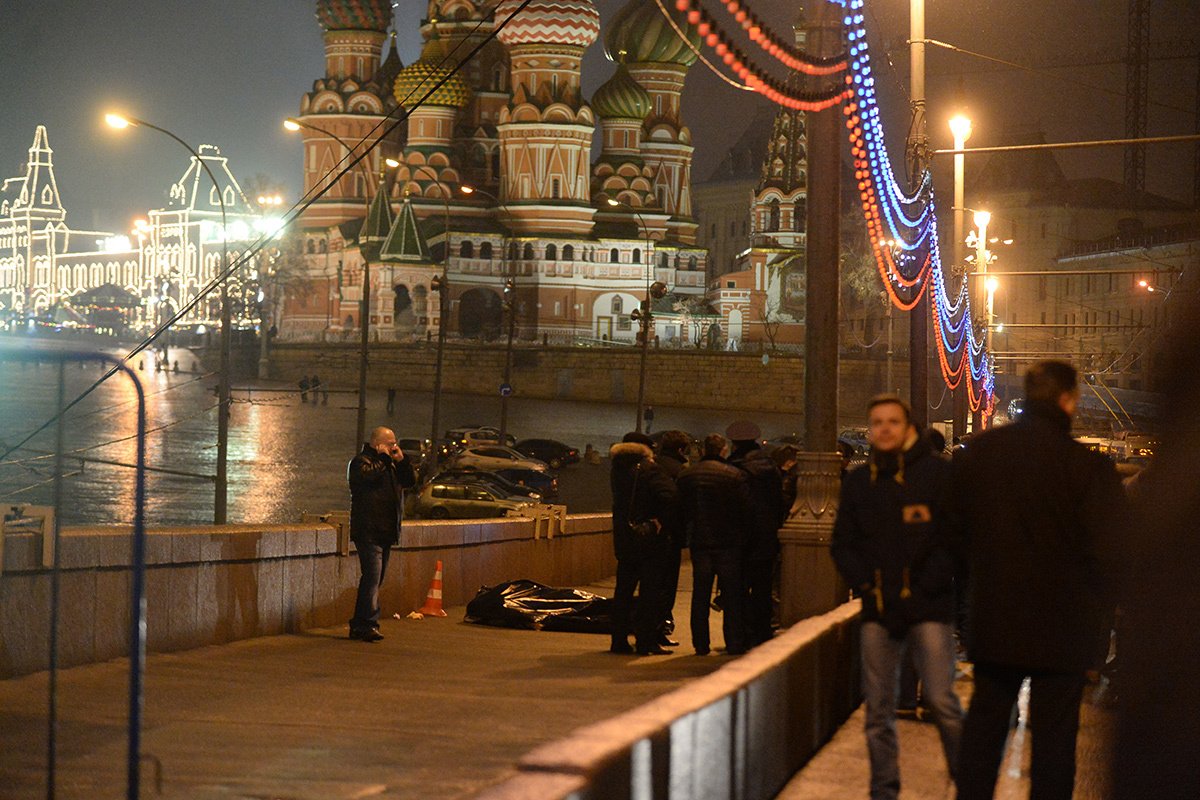
Investigators stand around the body of Boris Nemtsov in front of St. Basil’s Cathedral in central Moscow, February 28, 2015. Photo: Pavel Bednyakov / EPA
Boris Nemtsov’s killing rattled the Russian opposition, changing the political landscape for years to come.
“It feels like nine years ago, it was a little easier,” Nemtsov’s ally Ilya Yashin wrote from his jail cell in a post on Tuesday. “It seems like it’s all over, that all that is left is to put your hands down and resign yourself to evil,” Yashin wrote, adding however that he remembered Navalny’s calls to not give up in case of his death. “I’m sure Nemtsov would have said the same thing”.
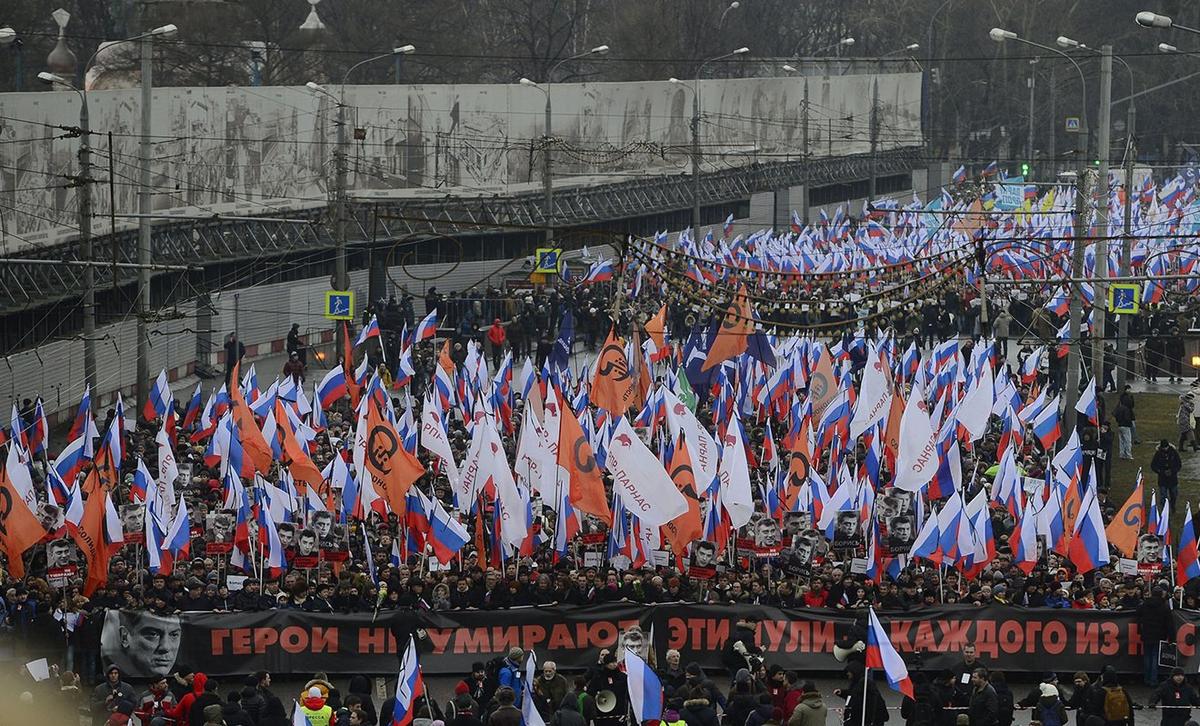
A rally in honour of Boris Nemtsov, 1 March 2015. Photo: Sefa Karacan / Anadolu Agency / Getty Images
Join us in rebuilding Novaya Gazeta Europe
The Russian government has banned independent media. We were forced to leave our country in order to keep doing our job, telling our readers about what is going on Russia, Ukraine and Europe.
We will continue fighting against warfare and dictatorship. We believe that freedom of speech is the most efficient antidote against tyranny. Support us financially to help us fight for peace and freedom.
By clicking the Support button, you agree to the processing of your personal data.
To cancel a regular donation, please write to [email protected]
